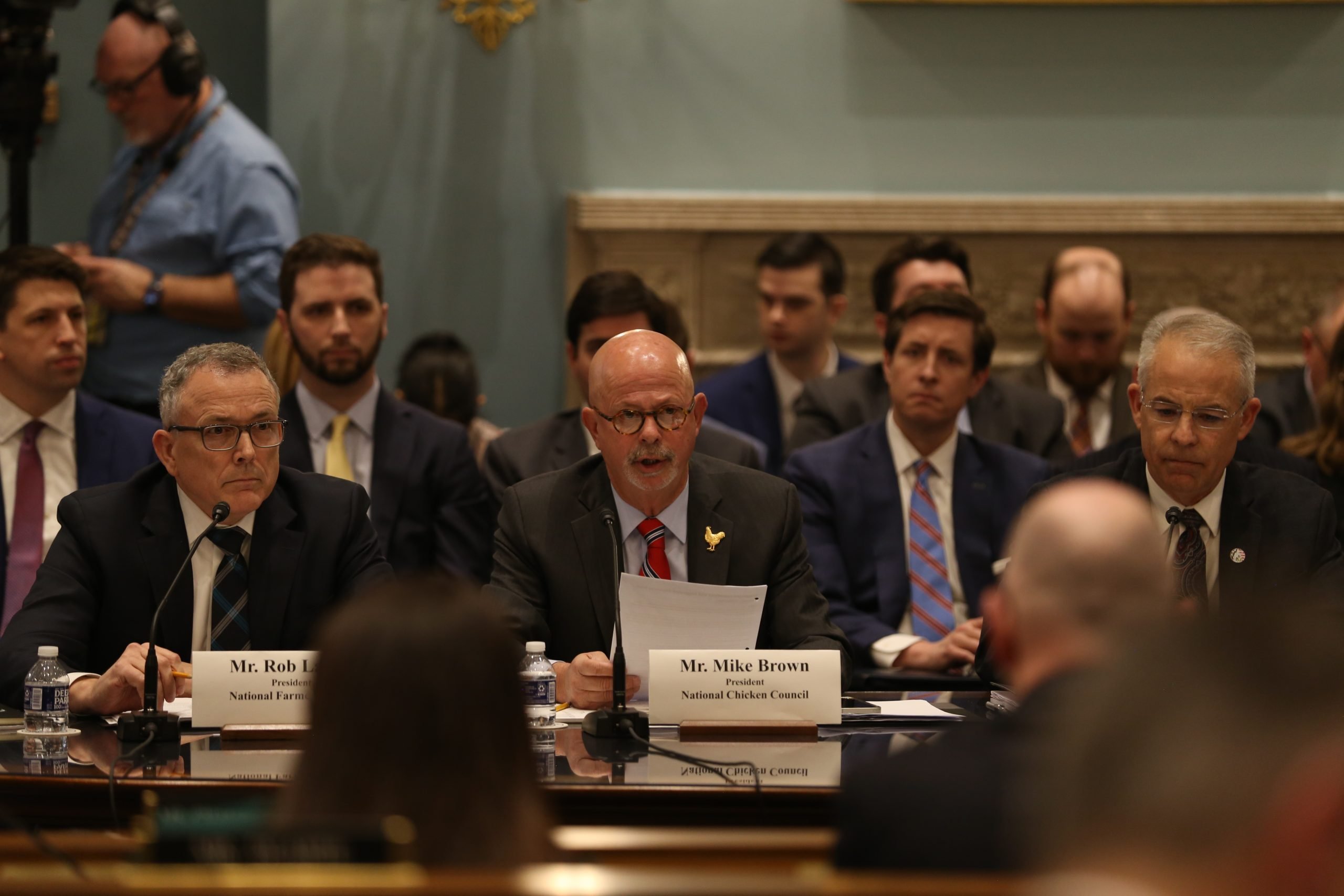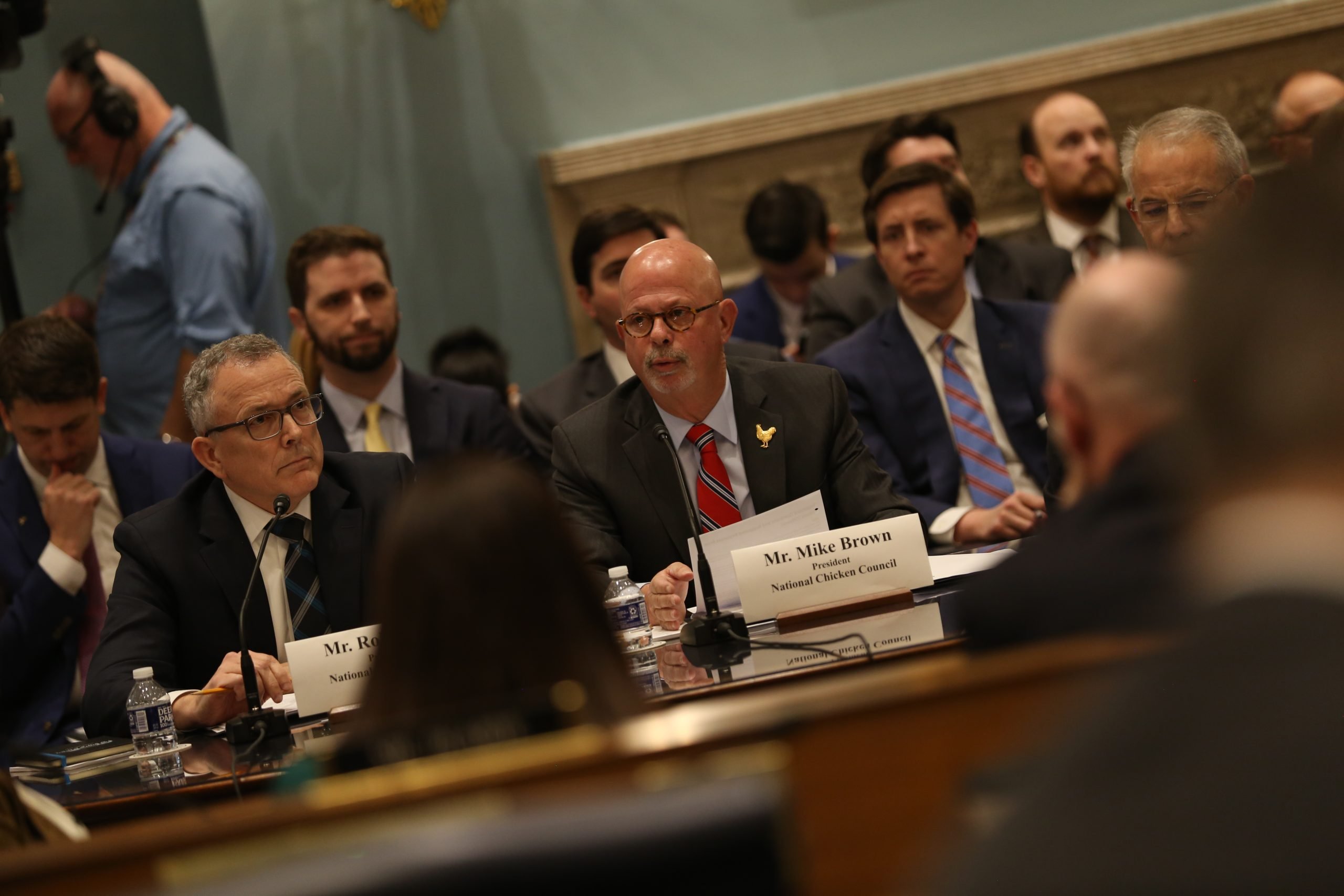NCC President Mike Brown on Tuesday testified before the House Agriculture Committee in a hearing that focused on regulatory red tape on production agriculture.
The hearing, entitled, “Uncertainty, Inflation, Regulations: Challenges to American Agriculture,” was the first the committee has held in the 118th Congress under new Chairman Glenn ‘GT’ Thompson (R, PA-15). Brown testified alongside American Farm Bureau Federation President Zippy Duvall, National Farmers Union President Rob Larew, Agriculture Transportation Coalition Executive Director Peter Friedmann, The Fertilizer Institute President and CEO Corey Rosenbusch, and Willard Agri-Service Vice President of Sales and Marketing Michael Twining.
Brown’s testimony focused on three major categories of rulemaking USDA is currently conducting that would have disastrous impacts to the U.S. chicken industry.
“First, USDA is threatening to layer on another series of unnecessary and financial ruinous regulations, and it’s critical we don’t repeat past mistakes,” Brown said in his opening testimony. “First, USDA has resurrected a 13-year-old Packers and Stockyards Act rulemaking that would stifle chicken production. Through a series of at least three rules, USDA is proposing to greatly increase the costs and legal risks involved in chicken grower contracting, making it all but impossible to incentivize high-performing farmers with bonus pay, and eliminate the need to show injury to competition when proving Packers and Stockyards Act violations. These would have disastrous consequences.”
“Second,” Brown continued, “USDA is suggesting it might abandon a well-established program allowing chicken processors to run certain parts of their plants at higher line speeds. Decreased production means more expensive chicken, fewer jobs, and less revenue for farmers, and it puts our industry on an even more uneven playing field on the global market.”
“Third,” Brown concluded, “USDA has released a proposed Framework that would make Salmonella an adulterant in all raw poultry, an abrupt change from longstanding USDA policy and court precedent. USDA has presented no data to justify its proposal, the testing technology does not exist to implement a policy like this, and this policy would be inconsistent with the Poultry Products Inspection Act. But one thing is certain: treating Salmonella as an adulterant in raw poultry would lead to disastrous levels of food waste. Each year, hundreds of millions, possibly billions, of pounds of chicken would be sent to landfills, dramatically driving up costs and putting even more pressure on consumers.”
“All of these regulatory programs share two things in common,” Brown said in concluding his testimony. “One, there is no compelling justification for them, and two, they would drive unprecedented levels of food inflation and food scarcity.”
Photos of the hearing provided by the House Agriculture Committee can be found below.
###
###



